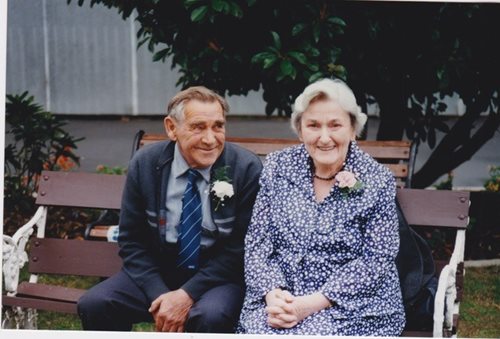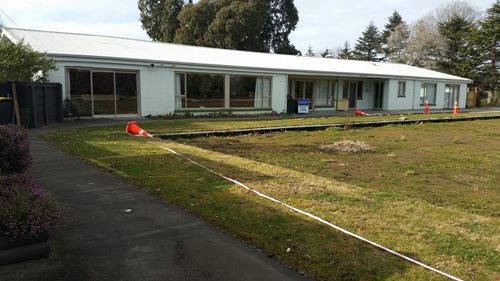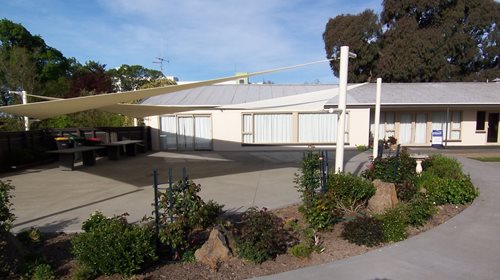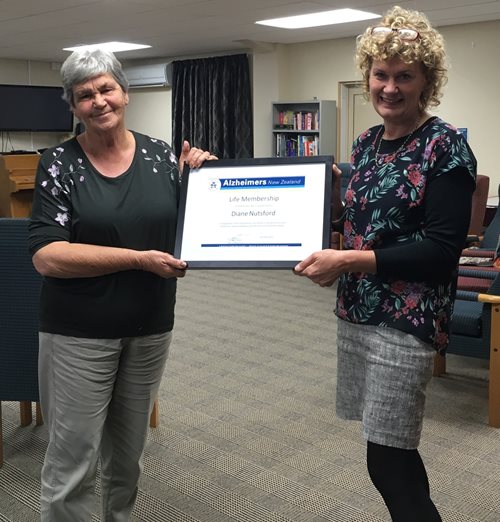Diane’s story

In many ways, it was the usual family Christmas. A big lunch followed by laughter, games and quality time together, joking and playing around. But this year was different.
27 November 2019 – by Diane Nutsford
Instead of joining in with the fun, Dad, usually the life and soul of the party, sat subdued at the end of the dining table.
I sat down next to him and asked him what was wrong. He asked me if I had seen an American documentary which had recently been on TV. It was about a lady with Alzheimer’s disease. I said I had. He looked at me, and said, “I think your mother’s got that.”
Between Mum’s increasing displays of frustration and anger, disappearing with the car, getting lost in the supermarket, and putting her credit cards in the freezer with the ice cream, I knew he was probably right.
But back then, I knew nothing about dementia. The TV documentary was the first thing I had seen or heard about it.
That’s when I approached Alzheimers South Canterbury, and joined one of their wonderful education courses. The diagnosis confirmed our suspicions. Mum was living with dementia.
In the early years ‘the D word’ (dementia) was whispered. People had little understanding of the condition, even the healthcare professionals. Dad doted on Mum and never wanted to upset or distress her by talking about her dementia directly. But the doctor told him, in front of her, “I don’t know why you bother, she will have forgotten in thirty seconds anyway.”
We all knew it was increasingly difficult for Mum to remember conversations in the short-term. But she always remembered how they made her feel. I felt upset and angry by the doctor’s response, and determined that we could do better than that for Mum.
So it made such a difference to us to have the support of Presbyterian Support South Canterbury, who really valued Mum as a person and put her very much at the centre of everything they did. In fact, she was their very first client!
It’s great to see these kinds of services on the increase in South Canterbury, with several agencies now running community programmes for people with dementia. This is a big leap forward in terms of our ability to support people with dementia to live independently at home for longer.
Between the care and support of my Dad, my siblings and I, we were lucky to be able to keep Mum at home until she died. It didn’t really occur to us not to try and keep life as normal as possible for Mum, and continue to be active and engaged in our community as much as we could.
We never regretted any of it, and we certainly had some good times amongst the harder ones.
But we couldn’t have done it without the support of Alzheimers South Canterbury, who back then only had one part-time member of staff and seemed to be really struggling financially.
I thought to myself, “I’m good at raising money, maybe I can help.”
That was ten years ago now, and during that time as both a fundraising committee member and Chairperson, I have watched the organisation go from strength to strength.
However, there is still a persistent myth that a diagnosis of dementia is the end of your life, there and then. But you can and should continue to be an active part of the community, in whatever way works for you.
My biggest wish has always been for people with dementia to be better supported to live the lives they want. As a volunteer for Alzheimers South Canterbury, that made me wonder what more we could to help.
When the park bowling club in Timaru closed its doors, we approached the Council and said that while we could not afford to rent the building, we could offer to renovate it and run it as a community centre. If it failed, we would hand it back to the Council, who would then get the renovated building back, for free. Unsurprisingly, they agreed!
At first, we didn’t even have a cent to get us started. So, we took to the streets with an ambitious daily target to collect donations. Day after day, we went out and approached people and businesses in the local community and talked to them about our vision.
We started to get some amazing support from the community. Lots of the electricians, plumbers and builders donated their time, in fact, we estimate around $250,000 worth of work was done in kind.
We made sure what we created was there to last. It’s a truly top notch building with fully accessible and commercial standard facilities.
Three years later, in 2017, The Park Centre opened as a community centre for people aged 60 and over. During that time, we raised $600,000 to fund the project.

Before

After
Today, we estimate that up to 300 people every week visit the Centre for a variety of activities, including day programmes, support groups, community meetings, working bees and gardening clubs.
I can’t deny that it was hard work, but being a volunteer for Alzheimers South Canterbury has been one of the most rewarding things I have ever done. I always felt welcome and valued as part of the team, and I have met so many dedicated people and learned so much from them.
I am truly honoured to be a Life Member of both Alzheimers NZ and Alzheimers South Canterbury, and was quite honestly blown away (and a little embarrassed!) when I received a Queens Service Medal for voluntary work last year. I am very proud of what we have achieved together, and awards aside, it’s nice to be a part of a team you know is making a difference.
I think it’s more of this community level support, along with increased awareness around dementia nationally, which is going to prove key to us building a more dementia-friendly NZ for the future.
I’d especially love to see more education about dementia for the younger generation. I know that being around ‘Nanny 2’, as he called Mum, really helped my own grandson. It’s so important to teach children about dementia from a younger age, to help them understand.
Awareness is worth its weight in gold. And there is a lot we can learn from people with dementia.
We all need to continue to challenge this idea that a dementia diagnosis means a person is no longer able to make a valuable contribution to society. My own experience with my Mum and all the wonderful people I’ve met over the past ten years continue to show me this could not be further from the truth.


